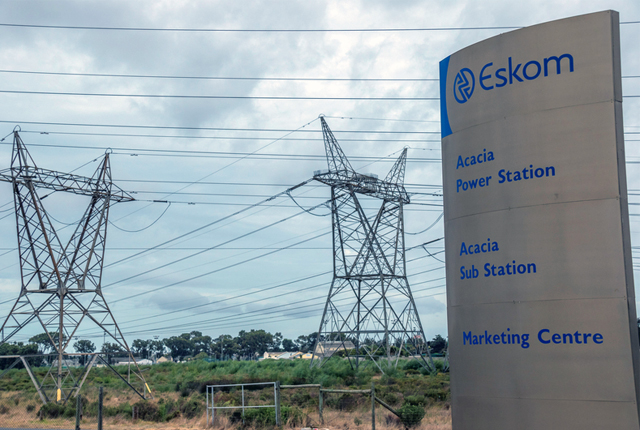South Africa’s state-run power company, Eskom, is poised to reveal a staggering annual loss of 15 billion rand ($823 million), according to a recent report by the Financial Times. This disclosure marks another challenging year for the utility, which is grappling with financial and operational difficulties amid ongoing energy shortages.
The significant loss, primarily attributed to an exorbitant 33 billion rand expenditure on diesel fuel used in open-cycle gas turbines, underscores the company’s struggle to maintain power supply without resorting to load shedding—a practice that involves rolling blackouts to avoid overloading the power grid. Eskom’s reliance on diesel, an expensive and less environmentally friendly option, peaked last year as the utility sought to keep the lights on across the nation.
This financial strain follows a year of similarly dire results, with Eskom having reported a loss of 23.2 billion rand in 2023. The forthcoming financial results, which cover the year ending in March, are expected to shed more light on the utility’s fiscal health and operational challenges.
Despite these daunting figures, Eskom’s Chief Executive, Dan Marokane, expressed a cautious optimism in his interview with the Financial Times. He highlighted a significant reduction in diesel usage as a pivotal factor that could lead to improved financial performance in the coming year. “We saw record use of diesel last year, hence record losses,” Marokane stated. “But we’ve really cut down on diesel, so we should see a substantial financial improvement this year. If we maintain our trajectory, there’s no reason we shouldn’t even see a profit.”
In a promising development, Eskom recently celebrated a milestone of 100 consecutive days without load shedding, a feat not achieved since late 2020. This improvement has been credited to better maintenance of its coal-powered plants and a significant contribution from 5 gigawatts of private solar installations, which have helped stabilize the power supply.
Marokane emphasized that ending the frequent power blackouts remains a top priority for Eskom, as these have severely impacted the economy of South Africa, the most industrialized nation in Africa. The blackouts have been a major setback for businesses and households alike, disrupting daily operations and contributing to economic downturns.
The ongoing efforts to enhance maintenance and integrate more renewable energy sources are part of Eskom’s broader strategy to mitigate financial losses and move towards a more sustainable and stable energy infrastructure.
While Eskom did not immediately respond to inquiries regarding their financial status, the company’s internal changes and strategic adjustments suggest a committed approach to overcoming its current challenges. With a focus on reducing operational costs and increasing efficiency, Eskom is aiming to transform its financial health and ensure a reliable power supply for South Africa’s future.



